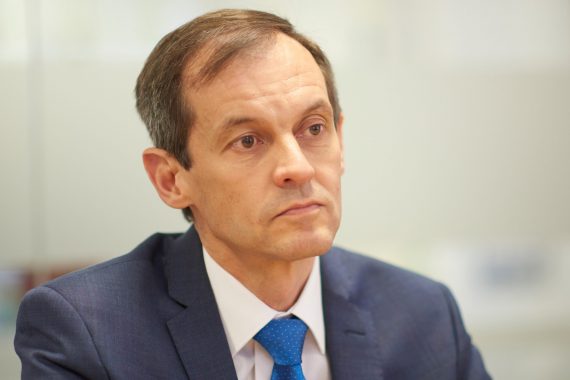‘Closing lists seems the only viable way to ensure patient safety’

Dear secretary of state,
Challenges facing general practice
You will be aware that the BMA recently undertook a survey of GP practices to gauge whether the current workload, funding and staffing pressures would necessitate GPs closing their lists to new patient registrations in order to maintain and protect levels of safe patient care. The survey, completed by almost 2,000 practices, worryingly revealed that:
- 54% of respondents would consider temporarily suspending new patient registration so they could focus on delivering safe care to patients already on their practice list
- 44% would be in favour of applying for a formal and permanent list closure from NHS England, in order to provide safe care to the patients already registered.
This clearly demonstrates the huge pressures facing general practice. GPs would only consider such action as a final recourse. We have, unfortunately, seen this borne out with recent announcements of practices having to close their lists. We are deeply concerned that this survey demonstrates practices are reaching the point where closing their lists seems the only viable way to ensure patient safety.
I would welcome the opportunity to meet with you over the coming weeks to discuss the urgent challenges which have led us to this position. I would like to work with you to address these concerns and to ensure a safe and sustainable environment for both doctors and patients. This would include finding a swift resolution to the indemnity crisis; implementing safe workload levels so that no patient or doctor is put at risk; driving a sustainable expansion of the general practice and community workforce; delivering arrangements that support practice premises development and sustainability; and ensuring adequate funding is made available and reaches frontline services.
NHS Digital’s latest figures show that, despite small increases in the last two years following the publication of the GP Forward View, there are actually less full time equivalent GPs than there were in September 2015. In addition, whilst commitments to increase the recruitment of other healthcare professionals to work with and support GPs were welcomed, there remains a need to expand the whole workforce in a sustainable way. It is crucial that the government tackles the issue of recruitment and retention within general practice, as this is fundamental to enabling practices to meet the growing needs of their patients.
Rising indemnity costs, and the substantial differential (often around £10,000 or more) between primary and secondary care indemnity fees are not just adding to the severe financial difficulties felt across primary care, but further exacerbating the existing primary care workforce crisis.
Prohibitive indemnity costs can be a contributing factor in GPs reducing their hours, limiting their ability to work in urgent care settings, or impacting their decision to work beyond retirement age or choosing to retire early. In addition, it is a major rate limiting factor for the expansion of the multidisciplinary workforce in and around general practice. A new system is required for primary care which is comparable and equitable with secondary care, and takes this current huge burden away from GPs. While I note Simon Steven’s recent comments with regard to securing a ‘medium-term’ solution in the ‘not too distant future’, and the recently announced renewal of the winter indemnity scheme, what general practice requires is an immediate, long-term solution for all GPs and their staff working in the NHS.
Despite commitments made in the GP Forward View, increased resources are failing to reach frontline primary care services in a primary care services in a way that makes a tangible difference. BMA research shows that despite some welcome increases in funding allocations for general practice, health service spend on primary care is lower now, 7.9% of overall NHS investment, than in 2005/06, when it was 9.6%. Furthermore, funding commitments made to support much needed practice premises developments are not being delivered, with many practices reporting significant delays and bureaucratic barriers preventing them improving or expanding their premises to provide better care for their local population.
With unprecedented patient demand, a recruitment and retention crisis, huge workforce shortfalls and major practice premises problems, it is no wonder that GPs are having to consider action such as suspending their patient lists.
I would welcome the opportunity to meet with you to discuss these issues in more detail, and to work with you to resolve them. If you require any further information, please do contact Gemma Hopkins, BMA senior public affairs officer, on [email protected] or 020 7383 6287.
Yours sincerely,
Dr Richard Vautrey
Chair, BMA general practitioners’ committee
Pulse October survey
Take our July 2025 survey to potentially win £1.000 worth of tokens










